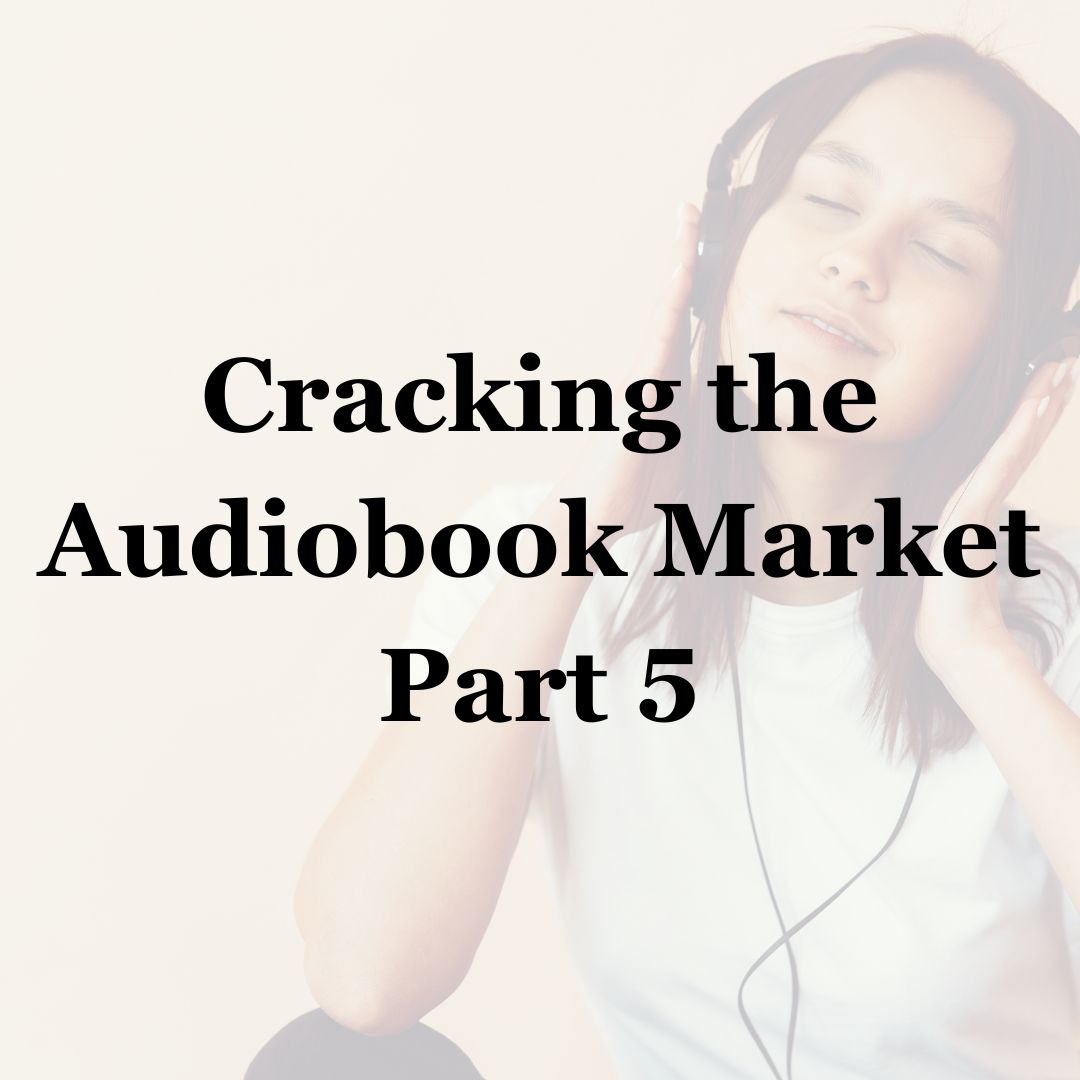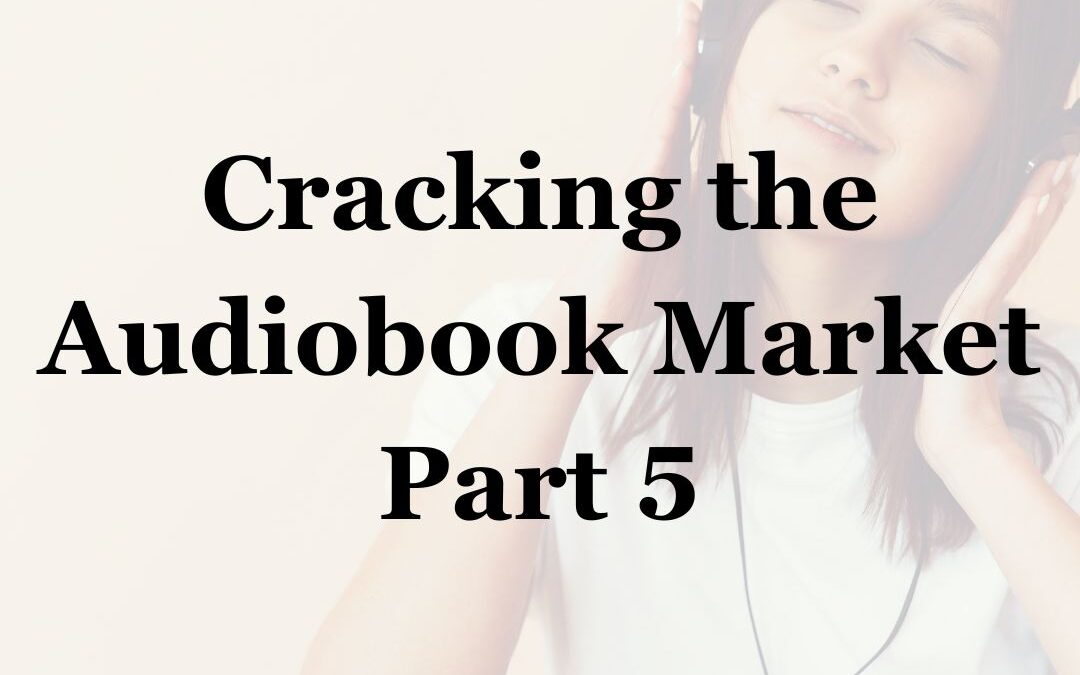Distribution: Exclusive to Audible or Wide?

So you’ve made your choice to get into the audiobook market (Part 1), learned the generic steps any text takes on the journey to audio (Part 2), looked closely at the pros and cons of the four paths an author can take on that journey (Part 3), and learned what resources are available to help you in a hybrid model (Part 4). But what do you do with the completed files? How do you get them to audiobook sellers? Which ones?
Audiobook sellers get their product directly from you or from audiobook distributors. The best known distributor is ACX (audio creation exchange) which I’ve talked about before. They distribute to Audible and Apple and maintain the author dashboard tracking sales, revenue, and payments. If you want to update the metadata or upload new files, you do it through ACX.
If you want your book in other markets, you have to set up individual accounts with that seller OR use a distributor such as Findaway Voices (owned by Spotify) or ListenUp who—like ACX—maintain the author dashboard. In either case, when you have completed files, you set up an account with the distributor, provide meta data for your audiobook, a cover, documentation for payment, and sign an agreement laying out terms of service. (Cracking the Audiobook Market Resource Guide provides additional distribution resources.)
As in print and eBooks, there is an 800-pound gorilla in in the room: Audible (an Amazon company) which controls 63.4% of the US audiobook market. They offer incentives to authors to be exclusive, including higher royalties. The business decision you have to make is whether to be exclusive with Audible or “go wide.” That decision depends on your career goals and the popularity of your book. Let’s take a look at the pros of going exclusively with Audible:
- Audible offers higher royalties (40% vs. 25%) to authors who sell exclusively through them. If you go exclusive, you are locked in for five years before you can make a change. Here’s where math and the popularity of your book comes in. Can you make up that 15% difference in royalties with wider distribution? Does that matter to you, if your books are getting to a wider audience, including public libraries? (Audible does not distribute to libraries.)
- Audible offers a subscription service to its members which means their users might take a chance on an unfamiliar author if they like the book description/cover/narrator. (There is a shift in the market to more sellers providing subscription services which I’ll discuss in the final post.)
- You only have to deal with a single author dashboard/platform through ACX.
- Audible giveaway codes, used for marketing, are only available to those who go exclusive. They are the gold standard and many people won’t want to use other distributor’s codes.
- They are a trusted brand. With the lion’s share of the market, people know your book will meet their technical standards.
The cons of going exclusively with Audible are—not surprisingly—the pros of going non-exclusive. If you go wide:
- You can reach the over one third of the market that Audible doesn’t tap. There are dozens of additional audiobook sellers including Nook (Barnes & Noble) and Kobo. Another lucrative market is the subscription service Everand (formerly Scribd).
- Public libraries can get your books through specific distribution systems such as Overdrive and Hoopla rather than buy at market rate from Audible. This was the single most important factor for me in going wide with my novels. I’m a great supporter of public libraries and I wanted my books—paper and digital—available to library patrons.
- You can price your book as you wish for marketing purposes and change that price for sales. I set my prices comparable to the paperback costs. Currently Audible sets the price for your book and you have no control over it. This used to be strictly based on the length of the book. With pressures on their market like new streaming services, they have very recently (March 2023) reduced the prices on a number of titles. My novel-length books are now priced very similarly to the hardback. My shorter fiction is priced slightly lower than the paperback versions.
- Some distributors offer giveaway codes for marketing to replace the lost Audible codes.
- Going wide also means you can distribute directly to readers from your own website–an option many authors are increasingly taking because the returns are so great. The downside of this is setting up the shopping cart on your website and using a service such as Bookfunnel to deliver the files. Here’s an excellent step-by-step video tutorial, if you choose to add direct sales to your mix.
Besides losing the Audible giveaway codes when you go wide, there is the inconvenience of multiple dashboards. Most indie authors are familiar with eBook distributors (such as Draft2Digital) who consolidate distribution to the wider eBook market beyond Kindle. Audiobook distributors work the same way. You can set up accounts with individual markets, but it’s a hassle to track everything if you have many sellers. Most authors prefer to pay the distributors a small percent on every sale to keep all the paperwork in one place.
The problem with having a distributor provide your books to Audible is that they take their percentage out of your 25% royalty. Because Audible has almost two-thirds of the market, that small percentage can take a big bite out of your revenue. For that reason, I distribute to Audible through ACX to get the full 25% royalty and everywhere else through a distributor. I’ve personally found it manageable to have two dashboards. Your mileage may vary.
To summarize, there are significant advantages to either choice to go exclusive with Audible or tap into the wider market. What choice you make depends entirely on your career goals, popularity of your books, and personal values. I’ve made different choices for different books, so don’t think you have to take one route for all your books. Do what’s right for each one.
In Part 6, I talk about that bane of all authors—marketing. See you next week!
Faith L. Justice has eight books out in audio. She learned these lessons the hard way so you don’t have to. This series of posts is an expanded text version of a presentation she made to the New York City Chapter of the Historical Novel Society. The original video is here.
